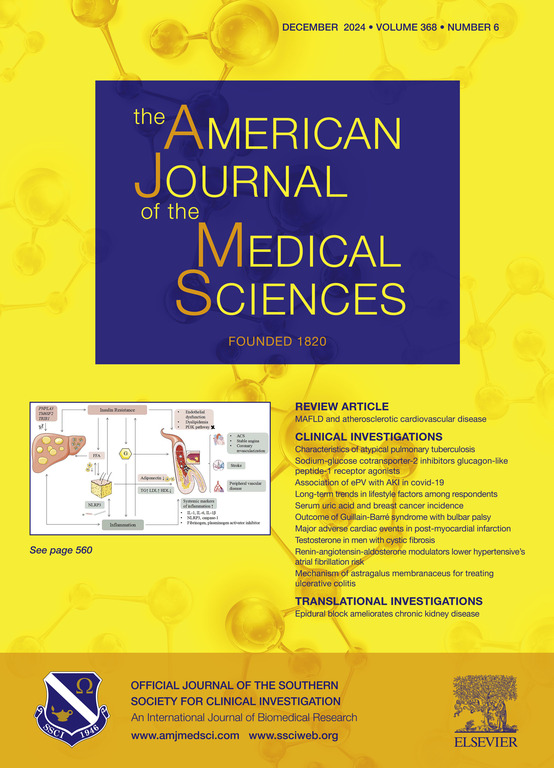呼吸困难、呼吸功能障碍和贝叶斯大脑假说。
IF 2.3
4区 医学
Q2 MEDICINE, GENERAL & INTERNAL
引用次数: 0
摘要
临床医生经常会对出现呼吸困难的患者进行评估。呼吸困难是指在体力活动时呼吸不畅,个人呼吸困难的强度或程度会因环境和个体差异而不同。在某些情况下,呼吸困难的程度与心肺系统的其他相关信息不成比例,这种情况被称为呼吸功能障碍。贝叶斯大脑假说有助于临床医生理解这些患者的这一症状。该假说认为,先前在体力活动或呼吸紊乱时出现呼吸困难的经历为解释当前症状提供了背景。本综述概述了与使用 "呼吸困难 "一词相关的问题,并简要介绍了贝叶斯脑假说如何帮助临床医生更好地理解这一症状。本文章由计算机程序翻译,如有差异,请以英文原文为准。
Dyspnea, dysfunctional breathing disorders, and the Bayesian brain hypothesis
Clinicians frequently evaluate patients who present with dyspnea. This term describes uncomfortable breathing during physical activity, and the intensity or degree of dyspnea can vary in an individual depending on circumstances and between individuals. In some cases, the level of dyspnea appears out of proportion to other information relevant to the cardiorespiratory system, and this situation has been described as dysfunctional breathing. The Bayesian brain hypothesis helps clinicians understand this symptom in these patients. This hypothesis suggests that prior experiences with dyspnea during physical activity or a respiratory disorder provide the background that is used to interpret current symptoms. This review outlines problems associated with the use of the term “dyspnea” and briefly describes how the Bayesian brain hypothesis might help clinicians understand this symptom better.
求助全文
通过发布文献求助,成功后即可免费获取论文全文。
去求助
来源期刊
CiteScore
4.40
自引率
0.00%
发文量
303
审稿时长
1.5 months
期刊介绍:
The American Journal of The Medical Sciences (AJMS), founded in 1820, is the 2nd oldest medical journal in the United States. The AJMS is the official journal of the Southern Society for Clinical Investigation (SSCI). The SSCI is dedicated to the advancement of medical research and the exchange of knowledge, information and ideas. Its members are committed to mentoring future generations of medical investigators and promoting careers in academic medicine. The AJMS publishes, on a monthly basis, peer-reviewed articles in the field of internal medicine and its subspecialties, which include:
Original clinical and basic science investigations
Review articles
Online Images in the Medical Sciences
Special Features Include:
Patient-Centered Focused Reviews
History of Medicine
The Science of Medical Education.

 求助内容:
求助内容: 应助结果提醒方式:
应助结果提醒方式:


